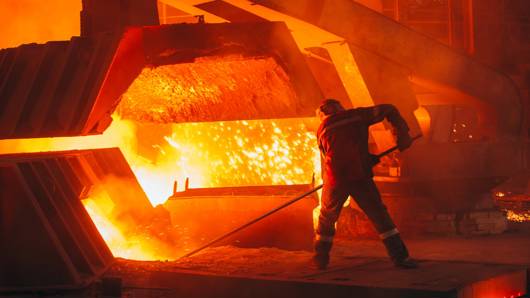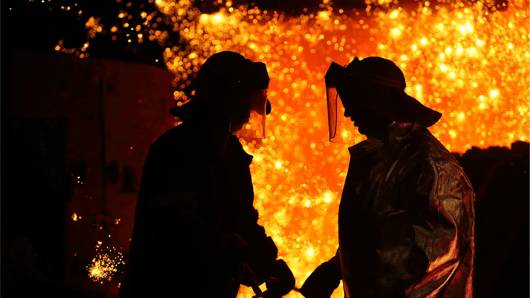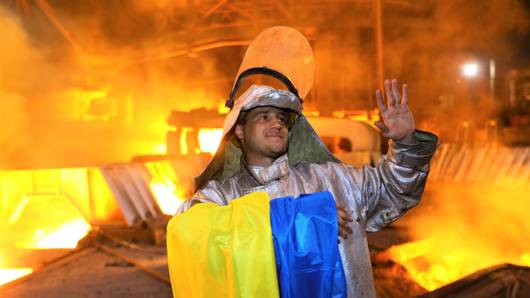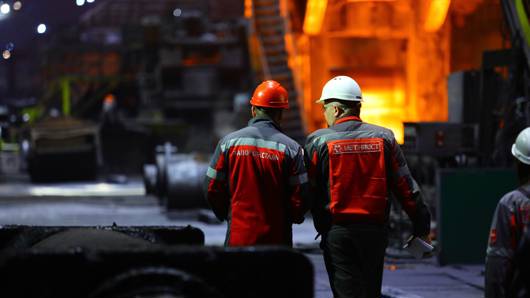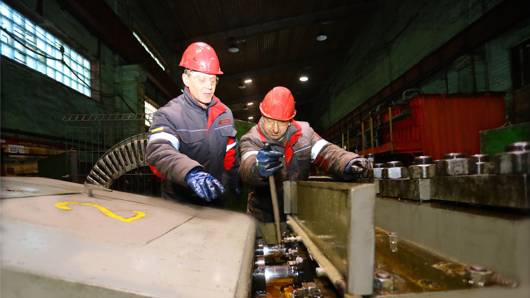In 2023, the volume of Ukrainian goods in Poland increased by 16%. While the unblocking of routes has helped to increase cargo traffic, there continue to be transhipment bottlenecks at ports and border crossings.
In an interview with Puls Biznesu, a leading Polish media outlet, Yuliya Mezentseva, head of logistics at Metinvest Polska, discussed:
▪️ how much of Metinvest’s goods stay in Poland and how much is transported to other countries,
▪️ how Metinvest has been supplying steel products to the Polish market in recent years,
▪️ how much Polish logistics bottlenecks cost Metinvest.
Metinvest, a Ukrainian supplier of steel products, iron ore and coking coal, is expanding its operations in the Polish market despite the war.
For us, 2023 was slightly better than the previous year. The congestion and queues on the Polish railway network decreased, contributing to an increase in the efficiency of transportation. We recorded a 16% year-on-year increase in tonnage. We transported a total of 1.9 million tonnes through Polish ports and railways, including around 1.3 million tonnes of steel products, 378 thousand tonnes of iron ore and 237 thousand tonnes of coking coal.
— Yuliya MEZENTSEVA, head of logistics at Metinvest PolskaOf the total volume of products transported from Ukraine to Poland, 939,000 tonnes were exported to other countries via Polish ports.
Yuliya Mezentseva said: “Coal needed to operate our steel plants in Ukraine was also transhipped in Polish ports.”
Some of the products shipped from Ukraine to Poland were also transported by rail or lorries to Germany, the Czech Republic, Italy, Slovakia and other countries.
Ukrainians bet on steel
Yulia Mezentseva says that while iron ore previously dominated the structure of supplies from Ukraine, steel products are the primary imports today. According to the Metallurgical Chamber of Industry and Commerce, Ukraine is the largest non-EU steel supplier to Poland.
The head of logistics at Metinvest Polska predicts that in 2024, Metinvest will at least maintain and possibly even slightly increase the volume of certain products that it supplies to the Polish market. She assumes that the structure will change, particularly the amount of steel imported from Ukraine. Local producers are concerned that if demand in Poland grows, Ukrainian steel will flood our market. Przemyslaw Sztuczkowski, president of Cognor, even suggests implementing limits on the supply of steel products from Ukraine to the EU. The idea is to allow free transit to other countries through Poland so that the number of products that remain on the Polish market does not threaten the stable functioning of Polish producers.
Yuliya Mezentseva keeps her emotions in check.
Yuliya Mezentseva noted: “We sold 1.2 million tonnes of our steel products directly to the Polish market in 2021, 0.7 million a year later, and 0.8 million in 2023. Due to the war, we have limited opportunities to grow production and supplies.”
Congestion at the border and ports
In addition, she draws attention to the problems of transporting products through the Polish-Ukrainian border and transhipment in ports, which hamper supplies to our market and transit by maritime routes.
Yuliya Mezentseva said: “The Polish-Ukrainian agreement stipulates that six trains a day with steel and ore should pass through the broad gauge at the Medyka border crossing. In practice, three or four are allowed through because the Polish border and railway administrations give priority to other transport. Therefore, we often have to wait for a long time at the border, which increases our costs. For every hour of standstill, we have to pay CHF1.9 per commercial wagon.”
She assumes that one of the reasons for the long queues at the border could be the recent protests by Polish transporters and farmers.
Yuliya Mezentseva said: “The queue on the Ukrainian side has sometimes reached 70 kilometres. In the case of delicate goods that had to be delivered to customers quickly, we have sometimes decided to change modes of transport and reload the products from vehicles to trains to avoid waiting in a very long queue.”
She hopes that the suspension of the protests will facilitate uninterrupted transport by road and rail, emphasising that after crossing the border, transport through Poland is quite efficient.
Yuliya Mezentseva said: “In 2022, we often had to wait on the branch lines, but now PKP PLK has significantly improved the capacity of the tracks leading to the ports.”
Although entry to the terminals is nearly hassle-free, there are difficulties with transhipment.
Yuliya Mezentseva said: “Bulk cargoes such as iron ore and coal are transhipped much faster than steel products. Transhipment at Polish ports takes four times as long as at Black Sea terminals.”
According to her, one of the reasons may be a lack of staff at the terminals.
Yuliya Mezentseva also points out that Polish customs regulations do not take into account that there can be changes in the weight of bulk cargo during transit. For example, they can occur because of weather conditions. Therefore, employees of transport and transhipment companies have to spend a long time during inspections explaining that coal or ore may weigh slightly more when it is raining than when it is not. There can also be so-called natural losses during transport.
Yuliya Mezentseva emphasised: “Railway rules allow for a certain percentage of spoilage for different groups of goods. Meanwhile, customs regulations do not allow for any losses that are subject to individual inspection by the service. For us, this means severe losses.”
Metinvest Group notes that it is interested in building long-term business relationships in the Polish market.
The head of logistics at Metinvest Polska added: “While we are talking about challenges, we are also ready to develop solutions together with the Polish side. We want to simplify procedures and transportation.”






